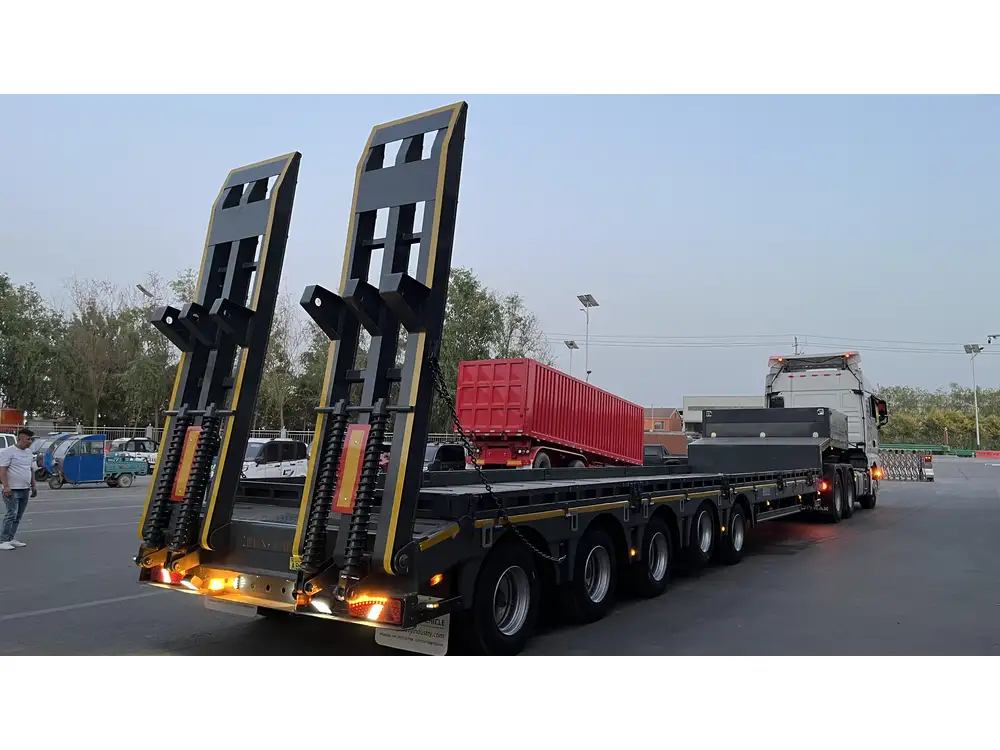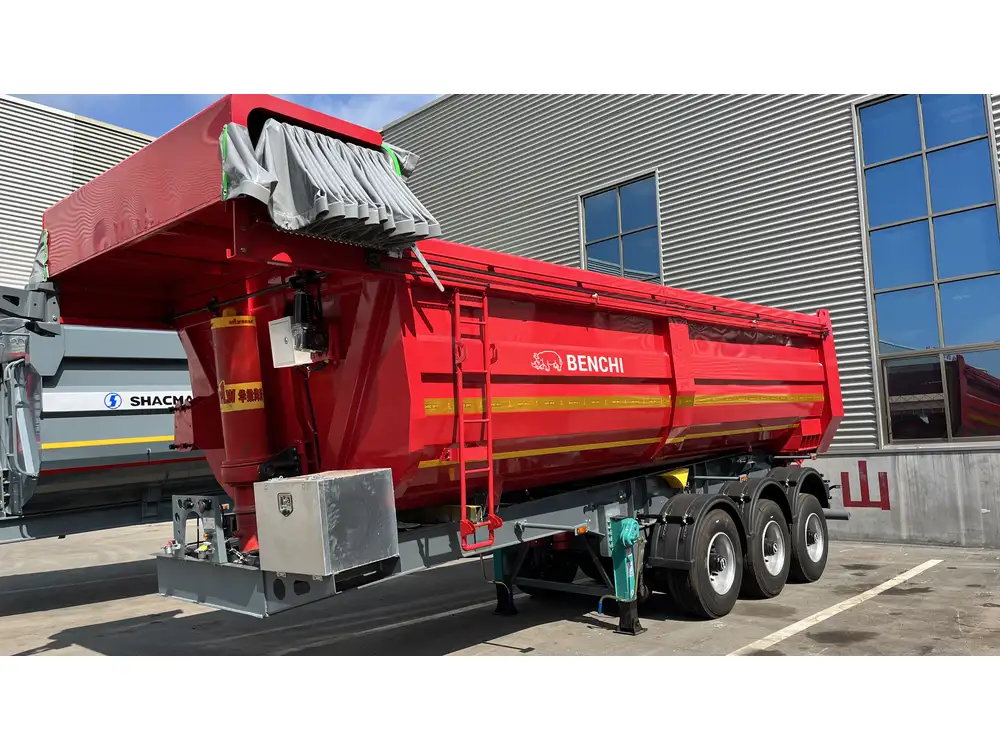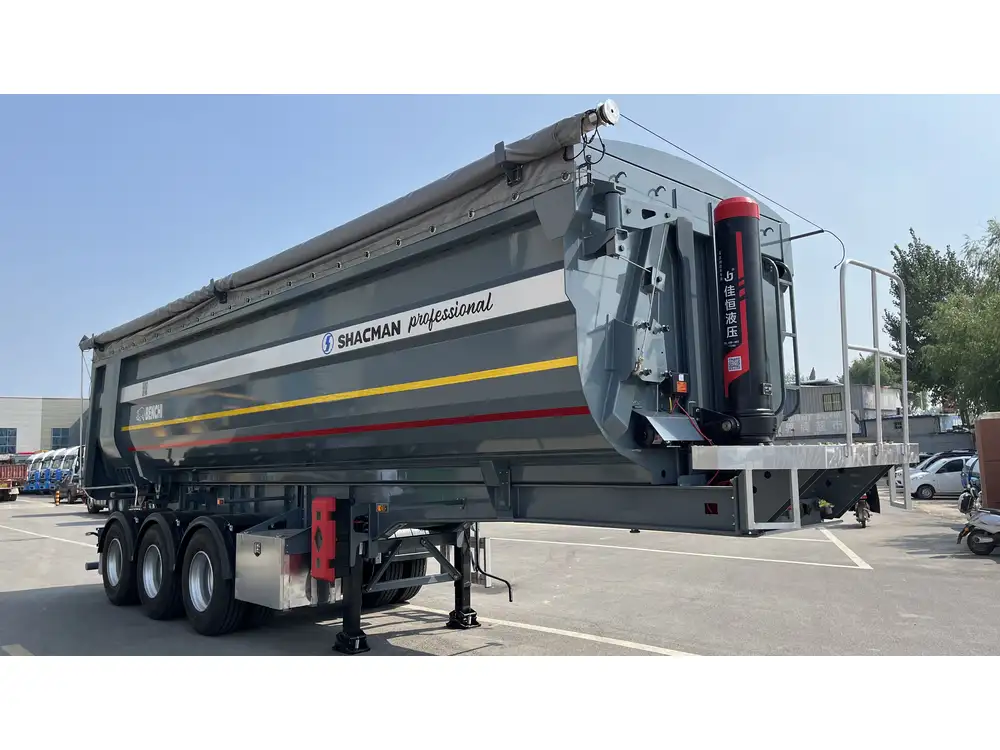Dump trailers are an essential piece of equipment in various industries, mainly construction, agriculture, and waste management. They provide efficient transportation and unloading of materials. However, a common question arises among users and potential buyers: How much does a dump trailer weigh? Understanding the weight of a dump trailer is crucial for several reasons, including towing capacity, payload limits, and compliance with legal regulations. This article delves into the factors influencing dump trailer weight, the types available, and their typical weights.
Key Factors Influencing Dump Trailer Weight
When considering how much a dump trailer weighs, several factors come into play:
1. Material of Construction
Dump trailers can be constructed from various materials, primarily steel and aluminum.
- Steel Trailers: These are more robust and durable, typically weighing between 2,500 to 5,000 pounds depending on the size and specifications.
- Aluminum Trailers: Weighing less, aluminum trailers range from 1,500 to 3,500 pounds, offering a lighter alternative that also resists rust and corrosion.

2. Size and Capacity
Dump trailers come in various sizes, commonly ranging from 5 to 20 cubic yards.
- Small Trailers (5-10 cubic yards): Typically weigh around 1,500 to 3,000 pounds.
- Medium Trailers (10-15 cubic yards): Generally weigh between 3,000 to 4,500 pounds.
- Large Trailers (15-20 cubic yards): Can weigh from 4,500 up to 8,000 pounds.
3. Features and Specifications
Additional features such as hydraulic systems, reinforced frames, and tarp enclosures can add to the overall weight of the trailer. A heavy-duty hydraulic system, for instance, might add an additional 500 pounds or more.
| Feature | Impact on Weight |
|---|---|
| Hydraulic System | +300-600 pounds |
| Reinforced Frame | +200-500 pounds |
| Tarp Enclosure | +50-200 pounds |
4. Tire Size and Type
The weight of a dump trailer can also vary depending on the tire size and type used. Larger, heavy-duty tires may add extra pounds but offer increased durability and performance.

5. Custom Modifications
Many dump trailers can be customized to meet specific user needs, which can influence the weight. Custom features often include reinforced sides for heavy loads, extra axles, or specialized hitches.
Typical Weights of Common Dump Trailer Types
To gain a clearer understanding of the various dump trailer weights, we can categorize them based on their designs:
1. Single Axle Dump Trailers
- Weight: 2,000 – 3,500 lbs
- Capacity: 5 – 7 cubic yards
- Best For: Light-duty hauling.

2. Tandem Axle Dump Trailers
- Weight: 3,000 – 5,500 lbs
- Capacity: 8 – 14 cubic yards
- Best For: Medium-duty transportation of heavier materials.
3. Triple Axle Dump Trailers
- Weight: 5,000 – 8,000 lbs
- Capacity: 15 – 20 cubic yards
- Best For: Heavy-duty applications, suitable for large-scale construction projects.
Analyzing Payload Capacity
When using a dump trailer, it’s vital to understand the payload capacity, which is the maximum weight it can safely carry, including the trailer’s own weight.

Formula to Calculate Payload Capacity
Payload Capacity = Gross Vehicle Weight Rating (GVWR) – Trailer Weight
The Gross Vehicle Weight Rating is determined by the manufacturer, and for dump trailers, it typically ranges from 7,000 to 15,000 pounds.
Example Calculation
- GVWR: 10,000 lbs
- Dump Trailer Weight: 3,500 lbs
Payload Capacity:
10,000 lbs (GVWR) – 3,500 lbs (Trailer Weight) = 6,500 lbs
This means that the trailer can safely carry up to 6,500 pounds of material. Understanding this calculation helps ensure safe hauling and adherence to highway regulations.
Compliance with Legal Regulations
It’s essential to comply with state and federal weight regulations. Overloading a dump trailer can lead to:
- Fines and Penalties: Many jurisdictions impose fines for overloading.
- Safety Hazards: Excess weight can compromise braking and handling capabilities.
- Vehicle Damage: Overloading can lead to premature wear on both the trailer and the towing vehicle.

Benefits of Choosing the Right Weight and Size
Assessing the proper weight and size of a dump trailer before making a purchase can have significant benefits:
1. Enhanced Towing Performance
A dump trailer that is within the towing capacity of your vehicle ensures smooth, stable driving without straining the engine or brakes.
2. Increased Fuel Efficiency
Properly sized trailers allow for effective fuel usage, as towing beyond capacity can lead to higher fuel consumption.

3. Longer Lifespan
Choosing a trailer that isn’t overloaded contributes to the longevity of both the trailer and the towing vehicle, reducing maintenance costs.
4. Improved Safety
A properly weighted and maintained dump trailer facilitates safer transport of materials, reducing risks of accidents on the road.
Popular Brands and Models
Several manufacturers have earned reputations for producing high-quality dump trailers with varying weights and features. Here is a comparative overview of leading brands:
| Brand | Model | Weight Range (lbs) | Capacity (cubic yards) | Notable Features |
|---|---|---|---|---|
| Big Tex | 14LX | 3,650 | 7 | Heavy-duty frame, 5-year warranty |
| PJ Trailers | 7X14DF | 4,400 | 10 | Low profile, adjustable hitch height |
| Timpte | 40′ Enclosed | 5,200 | 15 | Aerodynamic design, durable materials |
| Load Trail | 14 Dump Trailer | 4,700 | 10 | Dual ram cylinder, powder-coated finish |

Conclusion
Determining how much a dump trailer weighs involves examining several factors, including construction materials, size, payload capacity, and legal compliance. By understanding these aspects, potential buyers can make informed decisions that suit their specific needs while ensuring safe transportation of materials. Additionally, maintaining a keen awareness of the weight of both the trailer and its load can enhance safety, boost performance, and reduce operational costs. Whether for personal projects or large-scale construction, selecting the right dump trailer is crucial for efficiency and success in any hauling endeavor.
For those in the market for a dump trailer, taking the time to analyze the available options can lead to long-term satisfaction and performance.



